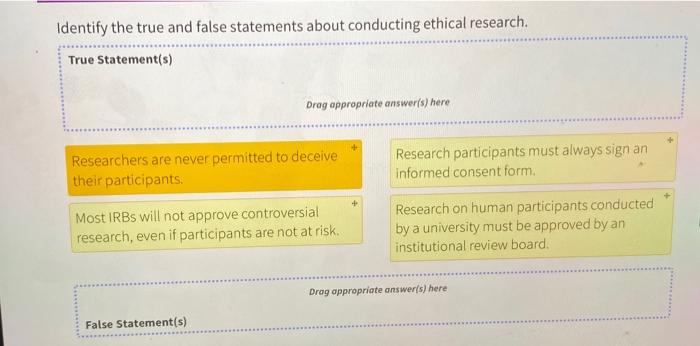Identify the true and false statements about therapy providers – Exploring the realm of therapy providers, this discourse delves into the nuances of their education, training, and ethical considerations. By dissecting true and false statements about these professionals, we illuminate the complexities of their scope of practice and address common misconceptions, empowering individuals to make informed decisions about their mental health care.
Types of Therapy Providers: Identify The True And False Statements About Therapy Providers

Therapy providers are individuals who provide mental health services to individuals, couples, families, and groups. They utilize various approaches to help clients address psychological and emotional challenges, improve their well-being, and achieve their therapeutic goals.
Education, Training, and Licensure
Different types of therapy providers have varying levels of education, training, and licensure requirements. Some of the most common types include:
- Psychiatrists: Medical doctors who specialize in the diagnosis and treatment of mental illness. They can prescribe medication and provide psychotherapy.
- Psychologists: Individuals with a doctorate in psychology who have specialized training in the assessment, diagnosis, and treatment of mental health disorders. They typically provide psychotherapy but cannot prescribe medication.
- Social workers: Individuals with a master’s degree in social work who are trained to provide counseling and support to individuals and families. They may also work in other settings, such as schools or hospitals.
- Licensed professional counselors (LPCs): Individuals with a master’s degree in counseling or a related field who are licensed to provide psychotherapy. They may work in private practice or in various settings, such as schools or community mental health centers.
- Marriage and family therapists (MFTs): Individuals with a master’s degree in marriage and family therapy who are trained to provide counseling to couples and families. They may work in private practice or in various settings, such as schools or community mental health centers.
Areas of Specialization
Therapy providers may specialize in different areas, such as:
- Child and adolescent therapy
- Couples and family therapy
- Trauma therapy
- Addiction treatment
- Eating disorders
Scope of Practice

The scope of practice for different types of therapy providers varies depending on their education, training, and licensure. Some of the key differences include:
Activities and Interventions
- Psychiatrists: Can diagnose and treat mental illness, prescribe medication, and provide psychotherapy.
- Psychologists: Can assess, diagnose, and treat mental health disorders, and provide psychotherapy.
- Social workers: Can provide counseling and support to individuals and families, and may also work in other settings, such as schools or hospitals.
- Licensed professional counselors (LPCs): Can provide psychotherapy in a variety of settings, such as private practice or schools.
- Marriage and family therapists (MFTs): Can provide counseling to couples and families in a variety of settings, such as private practice or schools.
Limitations and Restrictions
- Social workers: Cannot prescribe medication.
- Licensed professional counselors (LPCs): Cannot diagnose mental illness.
- Marriage and family therapists (MFTs): Cannot diagnose mental illness or prescribe medication.
Ethical Considerations

Therapy providers are bound by ethical guidelines that ensure the safety and well-being of their clients. Some of the key ethical considerations include:
Informed Consent
Therapy providers must obtain informed consent from their clients before providing any services. This means that clients must be fully informed about the nature of the therapy, the potential risks and benefits, and their rights as a client.
Confidentiality
Therapy providers must maintain the confidentiality of their clients’ information. This means that they cannot share information about their clients with anyone else without their consent, except in certain limited circumstances, such as when there is a risk of harm to the client or others.
Dual Relationships, Identify the true and false statements about therapy providers
Therapy providers must avoid dual relationships with their clients. This means that they cannot engage in any personal or romantic relationships with their clients, as this can compromise the therapeutic relationship and potentially harm the client.
FAQ Guide
What are the key ethical considerations for therapy providers?
Informed consent, confidentiality, and the avoidance of dual relationships are paramount ethical principles that guide therapy providers.
Why is it important to clarify true and false statements about therapy providers?
Correcting misconceptions and fostering accurate understanding empowers individuals to make informed choices about their mental health care.